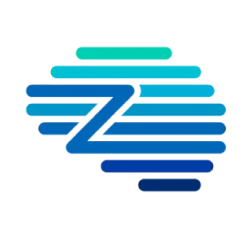In today’s interconnected and rapidly evolving business landscape, particularly within the Singapore region, the significance of implementing a robust Supplier Quality Management System cannot be overstated. This blog will delve into the foundational aspects and strategic implementations of Supplier quality management system, focusing on how procurement leaders and Chief Procurement Officers (CPOs) in Singapore can harness its potential to enhance their supply chain efficiency, mitigate risks, and foster long-term partnerships with suppliers.
What is Supplier Quality Management?
Supplier Quality Management is a systematic approach aimed at ensuring that the materials and services supplied meet or exceed the required standards of quality. It encompasses various processes and strategies, including the development of a supplier quality management process, the execution of a supplier quality improvement plan, and the rigorous evaluation of supplier quality metrics and performance metrics.
What are the benefits of Supplier Quality Management?
The APAC region has shown promising signs of recovery in the manufacturing sector towards the end of 2023, with notable rebounds in countries like Singapore, where manufacturing sector output surged by 7.4% year-on-year in October 2023. For procurement leaders and supplier management professionals, this growth signifies increasing opportunities for sourcing new suppliers, enhancing supplier relationships, and diversifying supply chains to leverage emerging strengths in South East Asian economies. It underscores the importance of developing a supplier quality management strategy that is adaptable to the dynamic growth patterns within the region. The benefits of implementing a Supplier Quality Management system are listed below:
- Risk Mitigation: Proactively identifying and addressing potential quality issues and risks across the supply chain before they impact the production line or, ultimately, the customer.Explore Zycus’ Supplier Risk Management Software
- Cost Reduction: Minimizing the costs associated with poor quality, such as rework, returns, and repairs.
- Enhanced Supplier Network: Building a collaborative environment with your suppliers where continuous improvement and innovation are encouraged and rewarded.Read more on: Your Guide to Supplier Network
- Customer Satisfaction: Ensuring product quality aligns with customer expectations, thereby enhancing brand reputation and loyalty.
Implementing Supplier Quality Management System in Singapore
The diversity and dynamism of the Singapore region, with its unique cultural, economic, and regulatory landscapes, presents both challenges and opportunities in the implementation of Supplier quality management system. Here are several key strategies tailored to the region:
- Cultural Sensitivity and Adaptation: Understanding and respecting the cultural nuances in Singapore can foster better communication and collaboration with suppliers.
- Regulatory Compliance: Ensuring that supplier quality management strategies comply with local and international regulations governing product quality and safety.
- Technology Integration: Leveraging advanced technologies, such as AI, to streamline the supplier quality management process, improve data accuracy, and enhance transparency.A McKinsey & Company study estimates that nearly 20% of the procurement function could be impacted by generative AI, ranking it as the third most affected business function. This indicates a significant shift towards automating tasks and streamlining operations within procurement.
- Supplier Engagement and Development: Adopting a collaborative approach to supplier development, including regular feedback, training, and support, to build capacity and improve quality standards.
- Continuous Monitoring and Improvement: Implementing a continuous loop of feedback and improvement through regular supplier audits, reviews, and updates to the quality management process and performance metrics.
- Customized Quality Metrics: Developing and applying region-specific quality metrics that reflect the unique demands and challenges of the Singapore region.
Best Practices for Supplier Quality Management
To maximize the effectiveness, procurement leaders should consider the following best practices while implementing Supplier quality management system:
- Set Clear Quality Expectations: Clearly define quality requirements and expectations with suppliers from the outset.
- Collaborative Risk Management: Work closely with suppliers to identify potential quality risks and develop mitigation strategies.
- Performance-Based Selection: Choose suppliers based on a comprehensive assessment of their quality performance metrics and improvement potential. In order to ensure that the Supplier Performance Evaluation process indeed creates the value it is intended to, it is very important to have the right KPIs.
- Regular Audits and Assessments: Conduct regular, thorough supplier audits and assessments to ensure ongoing compliance and identify areas for improvement.
- Invest in Supplier Development: Support suppliers in their quality improvement efforts through training, resources, and technology transfer.
Zycus’ Supplier Management Tool
In the quest for excellence in Supplier Quality Management within Singapore, Zycus’ supplier management software emerges as a pivotal tool. Why Zycus?
Zycus Supplier Network (ZSN)
Simple supplier self-service portal– from onboarding, through sourcing and contract negotiation up to transactional data exchange
Explore Zycus’ Integrated Supplier Network with Visibility into Every Transaction
Supplier Information Management (SIM)
Make better, more informed decisions about supplier selection, qualification and management
Supplier Risk Management (SRM)
Identify and mitigate risks associated with suppliers
Explore Zycus’ Generative AI-Powered Supplier Risk Management Software that delivers real-time risk insights for end-to-end risk management
Supplier Performance Management (SPM)
Measure and improve the performance of their suppliers. Identify areas for improvement and take action to improve them in real time
Ready to elevate your supplier management strategy? Request a demo with Zycus today and discover how our software can revolutionize your procurement processes.
Related Reads:
- Optimizing Supply Chain Operations With Strategic Supplier Management
- Transforming Data into Insights: Choosing the Right Supplier Scorecard Metrics
- Unlocking Efficiency: The Pros and Cons of Supplier Managed Inventory
- The Importance of Effective Supplier Audit Management
- The Value of AI in Proactive Compliance Management
- Elevating Performance with Digital Supplier Data Management
- White Paper: Supplier Management Automation
- Research Report: Taking a 360° Approach to Supplier Management
- Research Report: Seven Keys to Better Sourcing and Supplier Management
- White Paper: 5 Steps for effective supply chain management
- White Paper: Supplier Risk Management Framework: A Comprehensive Approach to Mitigating Supplier Risks








































